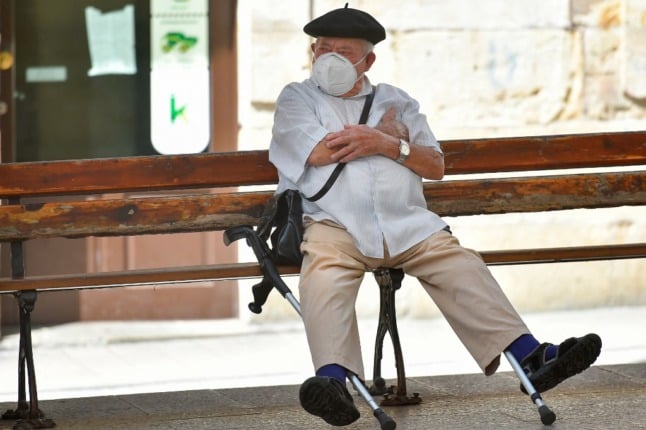On July 26th, Spain celebrates Grandparents Day. The day coincides with the feast day of Saints Joaquin and Anne, who are widely believed to have been the parents of the Virgin Mary and thus, the grandparents of Jesus.
So what makes Spanish grandparents so special?
They are very close to their grandchildren

Photo: hector pastor fernandez/Flickr
An estimated 20 percent of grandparents in Spain live in a “multi-generational” home with their children and grandchildren, which forges strong bonds between the oldest and youngest members of the family. It is less common in Spain to send grandparents to nursing homes, and more usual that they go to live with younger relatives when they find they can no longer live alone.
They help their families financially
According to a recent study, 62 percent of Spanish grandparents admit to helping out their children financially. Many Spanish families have suffered during the economic crisis and it has often been grandparents who have helped to secure the lives and futures of their grandchildren by offering financial assistance.
They live a very long time

Photo: Quedalapalabra/Flickr
Spaniards have the highest life expectancy in Europe and one of the highest in the world which means, quite simply, that Spanish grandparents are around a lot longer than grandparents in other countries. This is a plus, considering Spanish women are among the oldest first-time mothers in Europe, so they might be waiting around a while to become grandparents.
They swear a lot
Spanish is a sweary language and it is not unusual to hear sweet old ladies banding about the C-word as if it is no big deal in towns and villages across the country. Spanish grandparents know how to express themselves and use the most descriptive language at their disposal!
They are unofficial babysitters

Photo: Mikel Seijas Alonso/Flickr
Forget nannies, its grandparents who are the main caregivers to children in Spain after their parents. More than half (59 percent) admit to looking after their grandchildren while their children are at work, another way they have helped keep their families going throughout the economic crisis. A recent study found that half of Spanish granparents spent at least six hours a day caring for their grandchildren, often more than the parents themselves.
They are everywhere
You might be forgiven for thinking that in some Western countries, when grandparents reach a certain age they simply disappear; banished to an old people’s home and visited – at most – on a weekly basis by their families. Not so in Spain. Wander round any Spanish town or city and you see multi-generational groups socialising together, enjoying an aperitivo or a Sunday stroll around the local park. Grandparents are the cornerstone of family life in Spain and are – on the most part – cherished, and never viewed as a burden.
And finally… Sometimes living in Spain makes grandparents do extraordinary things




 Please whitelist us to continue reading.
Please whitelist us to continue reading.
Member comments